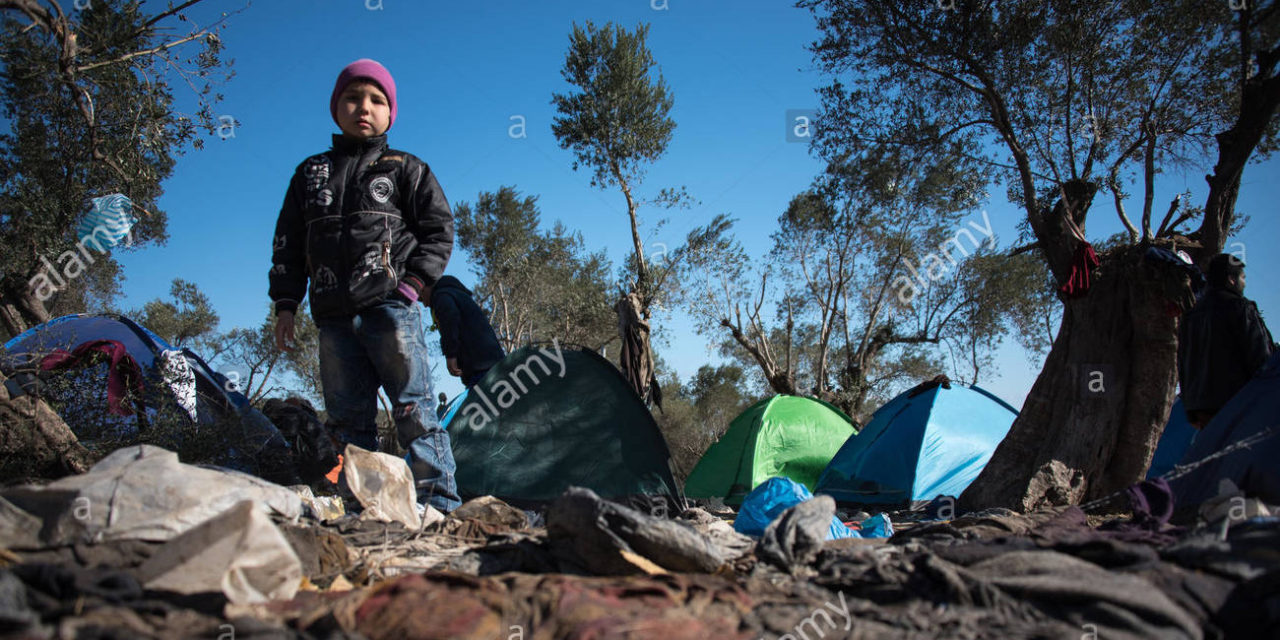PHOTO: A young refugee at the Moria camp in Greece (Alamy)
The international medical organization Medecins Sans Frontieres will no longer accept European Union funding because of objections to the EU’s policies towards refugees.
MSF said on Friday that the decision takes immediate effect and applies to money from the EU or member States.
The organization has denounced a March deal between the EU and Turkey, in which Ankara accepted refugees who had made it to Greece in return for support funds, more visas for Turks to visit Europe, and resettlement of some Syrian refugees who were already in Turkey.
MSF said in its statement:
On the Greek Islands, more than 8,000 people, including hundreds of unaccompanied minors, have been stranded as a direct consequence of the EU-Turkey deal. They have been living in dire conditions, in overcrowded camps, sometimes for months. They fear a forced return to Turkey yet are deprived of essential legal aid, their one defense against collective expulsion. The majority of these families, whom Europe has legislated out of sight, have fled conflict in Syria, Iraq, and Afghanistan.
Jerome Oberreit, MSF’s International Secretary General, added:
For months MSF has spoken out about a shameful European response focused on deterrence rather than providing people with the assistance and protection they need. The EU-Turkey deal goes one step further and has placed the very concept of “refugee” and the protection it offers in danger.
Once again, Europe’s main focus is not on how well people will be protected, but on how efficiently they are kept away.
Last week the European Commission outlined a proposal expanding the arrangement with Turkey to more than 16 countries in Africa and the Middle East. Trade and development aid will be cut to countries who do not stem migration to Europe or enable forcible returns, rewarding those that do. Among these potential partners are Somalia, Eritrea, Sudan and Afghanistan – four of the top ten* refugee-generating countries.
MSF also cites the EU-Turkey deal as precedent that can be invoked by other countries. Last month, the Kenyan Government cited European migration policy to justify their decision to close the world’s largest refugee camp and send its residents back to Somalia.
Oberreit said:
Deterrence policies sold to the public as humanitarian solutions have only exacerbated the suffering of people in need. There is nothing remotely humanitarian about these policies. It cannot become the norm and must be challenged….
We are calling on European governments to shift priorities – rather than maximizing the number of people they can push back, they must maximize the number they welcome and protect.

